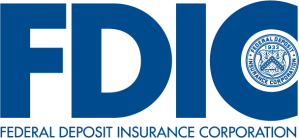What is the Truth In Lending Act?

Image: truthinlendingact.uslegal.com
Established in 2011 and based in Los Angeles, Real Estate Law Center aims to help people who are in mortgage loan distress. Believing that every family deserves a place to live, Real Estate Law Center represents clients who may have been victims of abusive loan terms. Real Estate Law Center uses their extensive knowledge in recognizing violations within topics like the Real Estate Settlement Procedures Act and the Truth in Lending Act (TILA).
The TILA exists to help protect borrowers against unfair credit card or loaning practices. Under this act, lenders must provide absolutely truthful loan cost information so that customers can bid out other companies in searching for a loan.
The TILA covers loans that can guarantee borrowers the right of rescission, which allows a borrower a short period of time to back out of the loan with no financial repercussions. Although the Federal Deposit Insurance Corporation only ensures bank deposits and no other types of investments, they created the Truth in Lending Act to help protect against mortgage loan fraud.
The California Homeowner Bill of Rights

Image: lenderlawlitigation.com
Headquartered in Los Angeles, Real Estate Law Center works to assist California residents who are having problems with their real estate loans. In serving clients, Real Estate Law Center draws from its deep knowledge of the California Homeowner Bill of Rights.
The home mortgage crisis in California has resulted in the crafting of the California Homeowner Bill of Rights, which took effect on January 1, 2013. One of its provisions is the restriction on dual tracking, which prevents a mortgage lender from continuing with the foreclosure process while the borrower is working to have a loan modification approved.
As homeowners go through the process of having their loans modified, another provision guarantees that they are provided with a single point of contact. This may be a person from the mortgage lender who is familiar with the details of their case and who has access to their documents.
Predatory Mortgage Lending Practices

Image: lenderlawlitigation.com
Real Estate Law Center PC was established in 2011 with a focus on mortgage litigation. Individuals or families who have experienced predatory mortgage lending practices in the state of California may seek assistance from Real Estate Law Center PC.
The office of the inspector general of the Federal Deposit Insurance Corporation states that predatory mortgage lending typically involves imposing unfair and abusive loan terms on borrowers. This kind of lending could lead a family to lose all of its wealth.
The National Association of Consumer Advocates reports that predatory mortgage lending is estimated to cost Americans over $9.1 billion annually. This kind of lending comes in many forms and is only one type of abusive practice.
Another abusive practice may involve charging very high fees. As the fees are not directly stated components of the mortgage interest rate, they can easily be concealed. Predatory loans could have fees that commonly exceed 5 percent of the total loan amount, while fees on competitive loans are usually less than 1 percent of the total amount. Another exploitative practice may involve lenders selling and financing unnecessary insurance or other products aside from the loan.
Due to the onerous terms, predatory mortgage lending could result in home foreclosure.
What Is Predatory Lending?

Image: lenderlawlitigation.com
Handling cases in California, Real Estate Law Center PC focuses on real estate litigation. Real Estate Law Center PC helps protect homeowners from predatory lending practices by banks.
Predatory lending imposes “unfair and abusive loan terms on borrowers,” according to the Federal Deposit Insurance Corporation, also known as the FDIC. More specifically, predatory lending practices often employ deceptive and exploitive means to force a person into accepting unreasonable loan terms.
Those most at risk of predatory lending could be individuals in low-income brackets, senior citizens, and people of minority populations. The primary reason is individuals within these groups are statistically more susceptible to lacking the financial means to afford care or services in times of emergencies. Some may also have poor credit or lack of income due to unemployment, making it more difficult for them to qualify for conventional loans and lines of credit. In respect to homeownership, a financial institution could leverage these situations to profit off of transacting a loan and possibly gain money from the same home should it be foreclosed upon due to missed mortgage payments.
Understanding Predatory Lending

Image: lenderlawlitigation.com
Real Estate Law Center PC exists to assist homeowners in mortgage-related legal matters, including instances of predatory lending. Comprising attorneys experienced in the area of real estate, the team at Real Estate Law Center PC is capable of meeting the needs of a variety of clients.
As noted in the Harvard paper Understanding Predatory Lending: Moving towards a Common Definition and Workable Solutions, there is no one definition for predatory practices in lending. However, predatory lending loosely defined is the act of providing a loan to a person or group by a lending party when the lending party has reason to believe that the receiving party will not be able to meet the terms of the loan.
Beyond the loose definition presented above, predatory lending practices can cover a broad range of lender actions. Several examples of actions that may be considered predatory lending can include the failure of a lender to disclose fees to the receiving party, charging fees for services not rendered, overcharging for services rendered, and failing to disclose repayment terms effectively.
While creating a textbook definition for predatory lending may not be possible, a possibly universal understanding might be that predatory practices in lending are any profit-driven attempt by a lender to mislead or be deceptive in the lending process.
How Consumers Can Be Aware of Predatory Lending

Image: fdic.gov
At Real Estate Law Center PC, lead attorney Erikson M. Davis and his team of associate attorneys serve individuals who have experienced instances of predatory lending. Based in downtown Los Angles, Real Estate Law Center PC operates under California state law.
The Federal Deposit Insurance Corporation defines predatory lending as “imposing unfair and abusive loan terms on borrowers.” Consumers can take a few actions to avoid predatory practices in lending, including:
–Shopping around. Loan terms will vary slightly from lender to lender, but if one financing offer seems drastically different from the others, consumers are advised to be wary of it.
–Reading the entire lending agreement and understanding a document before signing it. It may take time, but reading the entire document and fully digesting the information presented can reveal areas of question.
–Asking questions. A lender’s trouble answering, or inability to answer, consumer inquiries may indicate underlying problems with the loan terms.
–Consulting a lawyer or an adviser. He or she may spot things the consumer does not.
A home expense is one of the largest expenses a person will undertake in his or her life. It should not be approached lightly. While it is easy enough to get caught up in the happiness of buying a home, consumers should conduct thorough due diligence and understand the terms of the loan. This may mean the process will take more time, but any good lender will be willing to take the time to help the potential homeowner understand the lending terms.